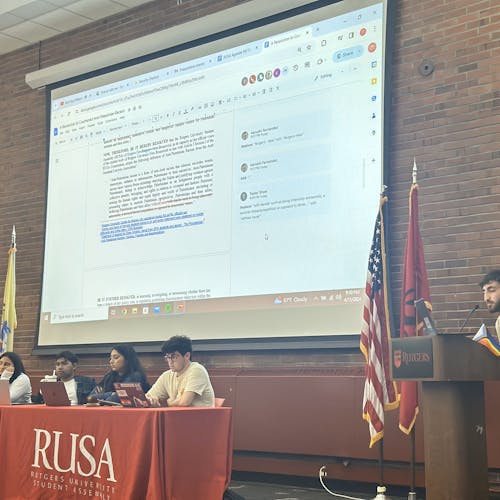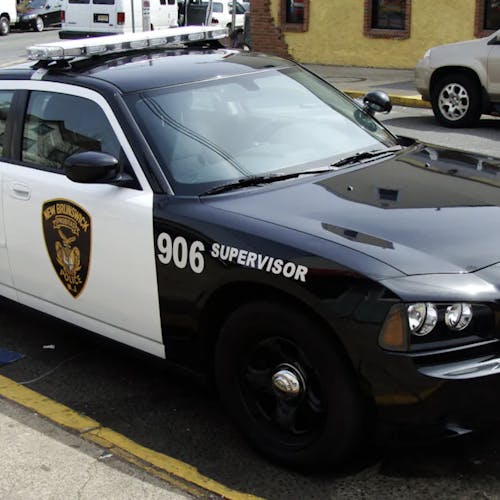Rutgers Student Affairs committee delivers list of suggestions for increasing student voting

In response to an initiative by the Rutgers University Senate, the Student Affairs Committee drafted a 19-page-report on how to best increase student-voter turnout in all public elections.
The initiative by the Senate, called “Charge S-1702: Increasing Student Voter Turnout in Federal, State, and Local Elections,” asked the committee to “Investigate how the number of Rutgers students who vote in federal, state and local elections can be effectively increased. Consider what changes in policies, procedures and practices can best encourage voting by students, including making election days holidays. Make appropriate recommendations.”
The committee's report covered many aspects of student voting, including voter registration, voter turnout, Rutgers’ voting and absence policies and the resources available to students both at the University and in the surrounding New Brunswick community.
Rutgers students have a relatively high voter registration rate, according to the report. This is due in part to numerous efforts by the University to inform undergraduates about the importance of voting and providing them with information on how to prepare for the election season.
“Over the years, a variety of structures have been put into place and efforts undertaken to facilitate the process. As a result, voter registration rates among Rutgers—New Brunswick students are strong in relation to comparable institutions,” according to the report.
In order to maintain and increase rates, current practices have to be sustained and additional efforts should be taken to ensure students receive support and are informed, according to the report.
Rutgers students can register to vote either in their home town or at Rutgers, and campus residents are eligible to file in New Brunswick, North Brunswick or Piscataway, according to the Center for Youth Political Participation's website.
In New Jersey, the voter registration deadline is 21 days before an election. The report recommends that Rutgers include voter registration forms in the materials provided to first-year students to increase voter registration.
The committee found that 54 percent of New Brunswick students voted in the 2016 general election, a more than 7-percent increase from 2012, according to the report.
New Jersey also allows any of its registered voters to cast a ballot by mail, but has specific deadlines for when voters need to request and submit their forms and is county-specific, according to the report. Its overarching recommendation is the adoption of a Campus Civic Action Plan.
Viktor Krapivin, the co-chair of the Student Affairs Committee, said that a Campus Civic Action Plan would greatly benefit student-political participation on campus.
“It’s essentially coordination between all the different campus-wide voter registration organizations,” the School of Arts and Sciences senior said. “If you coordinate, you can be so much more effective in getting students to vote, and making sure that they’re registered to vote.”
The committee said that such a plan, which would combine the resources and efforts of groups on campus like the New Jersey Public Interest Research Group (NJPIRG) and RU Voting?, would improve the number of students registered and actively voting on campus.
The committee presented its findings to the Senate, finishing off its report with a list of 15 recommendations to the University for increasing general voter turnout. University President Robert L. Barchi responded to the report in a letter.
"I believe that most of the committee’s recommendations would need to be implemented at the campus level — particularly those involving new student orientation, establishing polling places on our various campuses and voter education programs in the residence halls," he said. "With the exception of recommendations 9 and 13, the rest of your recommendations apply to actions taken at the campus level. Therefore, by copy of this letter, I am asking the four chancellors to work with their vice chancellors for student affairs to implement the recommendations in your report that are appropriate for their students."



